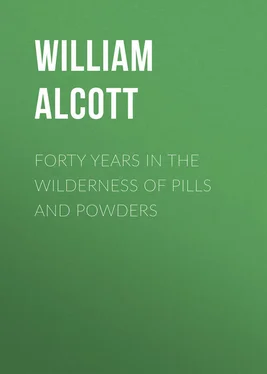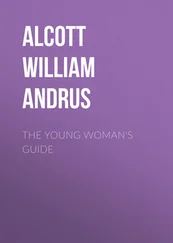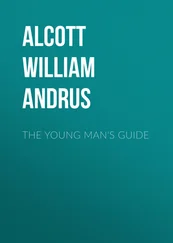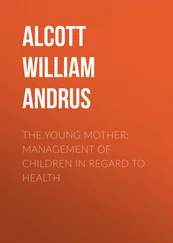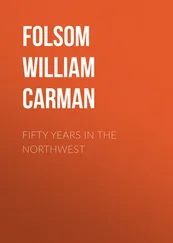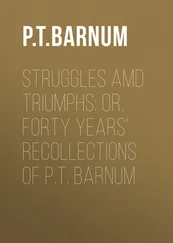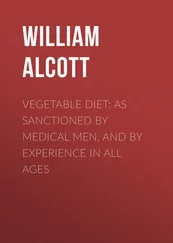William Alcott - Forty Years in the Wilderness of Pills and Powders
Здесь есть возможность читать онлайн «William Alcott - Forty Years in the Wilderness of Pills and Powders» — ознакомительный отрывок электронной книги совершенно бесплатно, а после прочтения отрывка купить полную версию. В некоторых случаях можно слушать аудио, скачать через торрент в формате fb2 и присутствует краткое содержание. Жанр: foreign_antique, foreign_prose, на английском языке. Описание произведения, (предисловие) а так же отзывы посетителей доступны на портале библиотеки ЛибКат.
- Название:Forty Years in the Wilderness of Pills and Powders
- Автор:
- Жанр:
- Год:неизвестен
- ISBN:нет данных
- Рейтинг книги:4 / 5. Голосов: 1
-
Избранное:Добавить в избранное
- Отзывы:
-
Ваша оценка:
- 80
- 1
- 2
- 3
- 4
- 5
Forty Years in the Wilderness of Pills and Powders: краткое содержание, описание и аннотация
Предлагаем к чтению аннотацию, описание, краткое содержание или предисловие (зависит от того, что написал сам автор книги «Forty Years in the Wilderness of Pills and Powders»). Если вы не нашли необходимую информацию о книге — напишите в комментариях, мы постараемся отыскать её.
Forty Years in the Wilderness of Pills and Powders — читать онлайн ознакомительный отрывок
Ниже представлен текст книги, разбитый по страницам. Система сохранения места последней прочитанной страницы, позволяет с удобством читать онлайн бесплатно книгу «Forty Years in the Wilderness of Pills and Powders», без необходимости каждый раз заново искать на чём Вы остановились. Поставьте закладку, и сможете в любой момент перейти на страницу, на которой закончили чтение.
Интервал:
Закладка:
CHAPTER XI
PHYSICKING OFF FEVER
The eyes of my mind having just begun to be opened to the impotence of a mere routine of medication as a substitute for nature , rather than as an aid to her enfeebled efforts , I was prepared to make a wise use of other facts that came before me, especially those in which I had a personal concern and interest. Here is one of this description.
On the morning of March 12, 1821, during the very period when I was watching over my sick friend, as mentioned in the preceding chapter, I took from the post-office a letter with a black seal. It contained the distressing intelligence of the death of a much-valued sister and her husband, both of whom, but a few months before, I had left in apparently perfect health.
On a careful inquiry into the particulars, both by letter and, after my return, in other ways, I learned that the Connecticut River fever, as it was then and there called, having carried off several persons who were residing in the same house with my brother, the survivors were advised to do something to prevent the germination and development of such seeds of the disease as were supposed to be in their bodies and ready to burst forth into action. I do not know that any medical man encouraged this notion, the offspring of ignorance and superstition; but my brother and his wife had somehow or other imbibed it, and they governed themselves accordingly.
Both of them took medicine – moderate cathartics – till they thought they had physicked off the disease; and all seemed, for a time, to be well, except that they complained still of great weakness and debility. It was not long, however, before they were both taken with the disease and perished; my brother in a very short time, and my sister more slowly.
My sister, on being taken ill, had been removed to the house of her mother, in the hope that a change of air might do something for her; but all in vain. My mother and a few other friends who were with them as assistants sickened, but they all ultimately recovered. They, however, took no medicine by way of prevention.
Now I do not presume to say, that my young friends were destroyed solely by medicine, for the assertion would be unwarranted. I only state the facts, and tell you what my convictions then were, and what they are still. My belief is, that though they might have sickened had they taken no medicine or preventive, yet their chance of recovery after they sickened was very much diminished by the unnecessary and uncalled-for dosing and drugging.
The notion that we can physick off the seeds of disease, or by our dosing prevent their germination, is as erroneous as can possibly be, and is a prolific source of much suffering and frequent death. The best preventive of disease is good health. Now, physicking off generally weakens us, instead of giving strength. It takes away from our good health instead of adding to or increasing it. As a general rule, to which there are very few exceptions, all medicine, when disease is unusually common or fatal, is hazardous without sound medical advice, and not generally safe even then. It is fit only for extreme cases.
You may be at a loss to understand how such facts and reflections as these could allure me to the study and practice of medicine as a profession. Yet they most certainly had influence. Not that I felt a very strong desire to deal out medicine, for to this I felt a repugnance which strengthened with increase of years and experience. What I most ardently desired was to know the causes of disease, and how far they were or were not within human control. Such a science as that of hygiene – nay, even the word itself, and the phrase laws of health – was at that time wholly unknown in the world in which I moved. There was, in truth, no way then to this species of knowledge, except through the avenues opened by a course of medical study. Hence it was that I blundered on, in partial though not entire ignorance, for some time longer, groping and searching for that light which I hardly knew how or whence to seek, except in pills and powders and blisters and tinctures.
CHAPTER XII
MANUFACTURING CHILBLAINS
At the period of my life to which we have at length arrived, I was for four or five months of every year a school teacher. This was, in no trifling degree, an educational process; for is it not well known that,
"Teaching we learn, and giving we retain?"
It was at least an education in the great school of human nature.
Every morning of one of these winter sessions of school keeping, Lydia Maynard, eight years of age, after walking about a mile, frequently in deep snow, and combating the cold northwest winds of one of the southern Green Mountain ranges, would come into the schoolroom with her feet almost frozen, and take her seat close to the stove, so as to warm them and be ready for school as quickly as possible. Here she would sit, if permitted to do so, till the bell rang for school.
It was not long before I learned that she was a great sufferer from chilblains. Whether she inherited a tendency to this troublesome and painful disease, which was awakened and aggravated by sudden changes of temperature, or whether the latter were the original cause of the disease, I never knew with certainty. But I was struck with the fact that sudden warming was followed by such lasting and terrible consequences.
And herein is one reason why I have opposed, from that day to this, the custom or habit, so exceedingly prevalent, of rushing to the fire when we are very cold, and warming ourselves as quickly as possible. I have reasoned; I have commanded; and in some few instances I have ridiculed. Every one knows it is hazardous to bring the ears or fingers or toes, or any other parts of the body, suddenly to the fire when really frozen, – that is, when the temperature is lowered down in the part to 32°; and yet, if it is only down to 33°, and the part not quite frozen, almost every one, young and old, will venture to the fire. Can there be such a difference in the effects when there is only a difference of one degree in temperature? No reflecting person will for one moment believe it. The trouble is we do not think about it.
Sudden changes from heat to cold are little more favorable than when the change is in the other direction. Indeed, it often happens that children at school are subjected to both these causes. Thus, in the case of Lydia, suppose that after roasting herself a long time at the stove, she had gone to her seat and placed her feet directly over crevices in the floor, through which the cold wind found its way at almost freezing temperature. Would not this have greatly added to the severity of the disease?
There are, it is true, other reasons against sudden changes of temperature, particularly the change from cold to heat, besides the fact that they tend to produce chilblains; but I cannot do more just now than barely advert to them. The eyes are apt to be injured; it renders us more liable than otherwise we should be to take cold. Occasionally it brings on faintness and convulsions, and still more rarely, sudden death. I will only add now, that sudden warming after suffering from extreme cold, whether we perceive it or not at the time, is very apt to produce deep and lasting injury to the brain and nervous system.
But my main object in relating the story is answered if I have succeeded in clearly pointing out to the reader one of the avenues through which light found its way to my benighted intellect, and led me to reflection on the whole subject of health and disease. Here was obviously one cause of a frequent but most painful complaint. It was natural, perfectly natural, that by this time I should begin to inquire. Have all diseases, then, their exciting causes? Many certainly have; and if many, perhaps all. At least, how do we know but it may be so? And then again, if the causes of chilblains are within our control, and this troublesome disease might be prevented, or its severity mitigated if no more, why may it not be so with all other diseases?
Читать дальшеИнтервал:
Закладка:
Похожие книги на «Forty Years in the Wilderness of Pills and Powders»
Представляем Вашему вниманию похожие книги на «Forty Years in the Wilderness of Pills and Powders» списком для выбора. Мы отобрали схожую по названию и смыслу литературу в надежде предоставить читателям больше вариантов отыскать новые, интересные, ещё непрочитанные произведения.
Обсуждение, отзывы о книге «Forty Years in the Wilderness of Pills and Powders» и просто собственные мнения читателей. Оставьте ваши комментарии, напишите, что Вы думаете о произведении, его смысле или главных героях. Укажите что конкретно понравилось, а что нет, и почему Вы так считаете.
